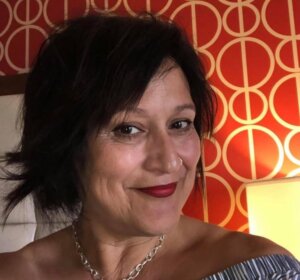02 Feb Scientific Advisory Board Spotlight: Deborah Robinson

In this edition of The Microscope, we would like to introduce you to another member of our Scientific Advisory Board, Deborah Robinson. Deborah is a retired Infant Death Investigation Specialist.
The SUDC Foundation Scientific Advisory Board was created to influence the priorities of SUDC resources to address the Foundation’s mission, the accurate dissemination of information regarding SUDC and provide scientific expertise to benefit the SUDC cause. The board is made up of researchers, clinicians and medicolegal death investigative professionals. These professionals offer advice and provide expertise in areas related to achieving the mission of the Foundation and helping to serve the needs of the SUDC community.
We are thankful to Deborah for lending her expertise to advance the cause of SUDC!
What is your area of expertise? Sudden Unexpected Infant Death Investigation
What is your professional background? I am trained by the American Board of Medicolegal Death Investigators. I am also the former deputy sheriff of Snohomish County Sherriff Office in Washington and Marine. At one point, I was hoping to go to law school. I was working on a research project for the Washington State Bar Association when I came home from a run to find our third child, Ian, dead in his crib. It was November 21, 1991, right on the cusp of the “Back to Sleep” campaign, which aimed to educate parents and other caregivers about the ways to reduce the risk of sleep-related infant deaths. Like many, our lives changed in an instant. We lived in a suburb of Seattle at that time. My son was transported to our local hospital where he was pronounced dead. I remember that no one asked us any questions as to what happened. I recall that the investigator from the medical examiner’s office came and the only thing he asked of us was “ …so you put your son to sleep for a nap and found him unresponsive, is that correct?” I was in shock at the loss of my son and the lack of questions posed by the investigator. I was also shocked no investigators came to our house, took pictures of the scene where my son died and no one in authority talked to my husband, my 5-year-old who shared a room or our 13-year-old. No one looked at his sleep environment and no one even asked me how old Ian was. He was a few days short of two months old. It left me feeling like my son and our family were robbed of an investigation, also robbing us of potential answers on what happened to him. This experience inspired the work that I do. Because of the lack of investigation in my son’s case I found myself walking the halls of Congress, knocking on the doors of legislators, leaving pictures of my son and his story on the desks of any aide who would listen to me. Recently I found an old letter from a member of Congress sharing that he had read my letter and would support an NIH bill on Sudden Infant Death Syndrome. I worked to change a few laws on the state level in my home state of Washington.
In what ways have you helped the SUDC Foundation as a member of the Scientific Advisory Board? I have been around since the inception of the SUDC Foundation! Back “in the day,” a handful of families impacted by sudden infant and child death collaborated with the National Association of Medical Examiners to raise awareness of SUDC. Pathologists at that time rarely assigned SUDC as a cause of death. We worked very hard over the years to standardize scene investigations, which is a critical first step investigating these deaths. I also joined the SUDC Foundation and other partners to advocate for Scarlett’s Sunshine on Unexpected Death. It marked the fifth congressional session in which I have been honored (and exhausted!) to be asked to help educate our policymakers on unexpected infant and child deaths.
What do you like best about helping the Foundation? I hope that over the years we have been able to help others who walk behind us in our footsteps.
What is one thing you wish fellow medicolegal death investigation professionals understood about SUDC? That when a family experiences unexplained pediatric death, there are a series of unintentional consequences. Families often live a lifetime of doubts and with an air of suspicion. I have known families who later were denied foster care licensing, adoptions, security clearances and background checks. To have a child die of unknown causes raises alarms far beyond the death. I want investigators to know the impact they leave behind after their investigation – that they are now part of a family’s history and that it is important they are mindful of the memories they are leaving behind for the family.
After your years of experience, what advice do you have for families who suffer an unexplained sudden death today? First, I would like to say how sorry I am for the loss of your child. I know there are times when it feels like your heart is being ripped from your chest. I wish I had magic words or a grief and trauma algorithm that could make everything better; but I can’t, and I don’t. As a death investigator, I wish we never had to meet. I am not going to sugar coat it – you are about to embark on the darkest period of life. Grief becomes a lifelong journey, but trauma should not. Lean into your pain, do not fight it, let it surround you like waves that pounds and takes you out to sea. Just do not get too far out from shore where you can’t swim back! Throw yourself a life raft like the SUDC Foundation and those who have walked in your shoes. They can support you with no explanations needed. I have found that after nearly 30 years, grief and I are old friends now. I have come to embrace it. It is the only tangible thing I have left of my son. Memories begin to fade after time. Sometimes I like to wear my grief like a warm comfortable sweater on those cold days like birthdays, holidays and sentinel family events. But soon the sun comes out, the days warm up and I can put my grief sweater away, until the next stormy day or season. If families have any questions about the medicolegal system regarding coroner, medical examiner or police investigation please contact the SUDC Foundation.
What is a fun fact or something people might be surprised to learn about you? I was the first female high school varsity wrestling coach in the state of Washington!
To see a full list of members of the SUDC Foundation Scientific Advisory Board, please visit here.


